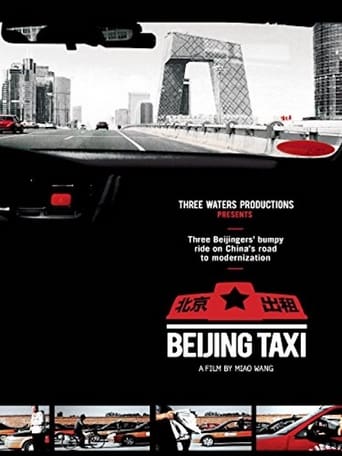Flyerplesys
Perfectly adorable
Dorathen
Better Late Then Never
Humaira Grant
It’s not bad or unwatchable but despite the amplitude of the spectacle, the end result is underwhelming.
Quiet Muffin
This movie tries so hard to be funny, yet it falls flat every time. Just another example of recycled ideas repackaged with women in an attempt to appeal to a certain audience.
JustCuriosity
Beijing Taxi, which had its World Premiere at SXSW in Austin, TX, provides the viewer with something that is all too rare – an uncensored look at the transformations occurring on the ground in China today. The Chinese-American director Miao Wang provides a sensitive humanistic portrait through the eyes of 3 ordinary Chinese taxi drivers from different generations and backgrounds. She lets them tell the story of modern urban China in the lead up to the 2008 Beijing Olympics. The filming is quite beautiful as it shows the new structures that are rising up to replace the older traditional Beijing that is being bulldozed by government fiat. The Olympics was an opportunity for this authoritarian regime to sell its propagandistic version of an ultramodern China to the world. But most Chinese have not yet experienced the fantasy painted for the world by their government. In Beijing Taxi, one sees the struggles of ordinary people dealing with issues of economic hardships, lack of education, and access to health care in a fast-changing society. In many ways the economic struggles of the average working class person in China are very much like that of the average working class person in the United States. This is the type of film that can help Americans relate to a changing China on a human level a lot better than all of the Olympic propaganda sold to Western audiences by the Chinese government. The film deserves a wider audience.

